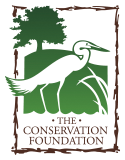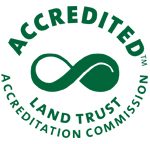by Dan Popek, Assistant Farm Manager
“The farmer lives and works in the meeting place of nature and the human economy. Farmers either fit their farming to their farms, conform to the laws of nature, and keep natural powers and services intact-or they do not. If they do not, then they increase the ecological deficit being charged to the future.”
This quote by Wendell Berry has stuck with me for most of my farming journey. The farming career is a perfect example of how to participate in the economy while working directly with nature. This idea was in the back of my head as I read a book called The Natural Way of Farming by Masanobu Fukuoka. The point was to emphasize the necessity of farmers to leave as much of nature intact as possible while still producing food efficiently. In the book, Fukuoka shares what he learned through several decades of experimenting and perfecting his own farming methods.
Finding Nature on the Farm
 ]
]
The main effort of the book is to change our assumption that vegetables need our intervention to grow. Fukuoka says it is presumptuous that we think we need to have strict and overly-scientific methods to allow a plant to grow. Plants, by their nature, should grow just fine on their own, without artificial intervention. I can already hear the protests of gardeners and farmers who struggle to get their vegetables to produce anything at all. But, let me see if I can defend this radical idea. It is not that we can simply sow a carrot seed in any old place and expect it to grow to the size we want it. But when in the environment that a plant has been accustomed to for thousands of years, each plant has everything it needs to outcompete the “weeds” and thrive, without any help from us.
An example from the book that I like was of pruning trees. A tree will grow to its natural shape if it is not damaged. Pruning against that shape will cause the tree to work even harder to compensate, and give us gardeners even more to prune the next year. Fukuoka thinks pruning is a necessity only because when we plant our pruned sapling, it is already altered from its natural path. Even minor interventions require extra work to ameliorate the damage they caused.
Here on McDonald Farm we can witness how some practices, in an effort to help the plants grow, cause many more obstacles to overcome after the initial intervention. A common practice of all vegetable farmers is starting seedlings inside and transplanting them to the field. To ensure good germination of seeds in controlled conditions, we start most of our seeds under grow lights and water them by hand.
To most farmers, transplanting may seem like a necessary practice, a no-brainer, but it actually has many set-backs, because it is so removed from nature. Seedlings have to be moved quickly to stronger sunlight after they germinate, or they get leggy in the weaker artificial light. After seedlings are started in a greenhouse, they are more susceptible to wind, heat, and cold damage if they are too quickly introduced to the elements. The roots of the seedlings can get tangled and cramped in their small trays if they are not transplanted on time. And just the action of transplanting these quickly can be extremely stressful to the plant. There are many ways to minimize these damages, but it is still an alteration from the natural path of the plant.
 ]
]
So why do we farmers still need to transplant?
Economy
There are good reasons for our farmerly interventions. We have the tastes and the needs of a whole community to satisfy. Perfectly natural farming is not an option when we are trying to produce timely food for so many people.For example, I love farm fresh tomatoes, peppers, and eggplant, but I know that they are not native to here, and if left to their natural ways, would not have a chance in this climate. I don’t plan on suggesting we give up growing and eating these, so we intervene on nature to allow them to grow here. This is one reason why we transplant, so that while it is still too cold for these plants to grow outside, we can get them started inside, where they will be well on their way to maturity before they would be naturally.
With a dedication to our community and customers, farmers have to stay on top of what people like eating and be able to produce that, by adding a little control and consistency to a chaotic nature.
But then we have to limit the damage that our interventions cause. This is where a farmer must negotiate with nature to help grow vegetables. We ask something from nature, and we do our best to give back with organic, natural practices.
The Meeting Place
I think this negotiation with nature is how farmers find their wisdom. Starting from the undisturbed ideal of nature, we can guide it to produce what we need, rather than lose touch with the natural environment. We learn to be good farmers by always aiming at how things naturally grow and finding ways of replicating that without disrupting the ecological balances with strong chemical fertilizers and pesticides. Many farmers overcompensate for damage they cause to the earth by even more artificial methods to correct problems in production. Instead of asking how they can allow nature to heal itself, many people would be tempted to throw down more fertilizer and till more.
At McDonald Farm we are continually looking to improve how we protect the land, not simply by taking from the land, nor by over-giving (with fertilizer). Nature can be an amazing self-healing buffer for damage; so whatever we can keep at a natural state, we hope to.
In this excerpt from the poem “Damage” by Wendell Berry, the narrator builds a pond as carefully as he could, but he still notices the damage it has caused by altering the natural landscape. He needed a source of water for his farm, a small demand from nature, yet it still needs to be healed.
“In general, I have used my farm carefully. It could be said, I
think, that I have improved it more than I have damaged it.
My aim has been to go against its history and to repair the dam-
age of other people. But now a part of its damage is my own.
The pond was a modest piece of work, and so the damage is not
extensive. In the course of time and nature it will heal.”



